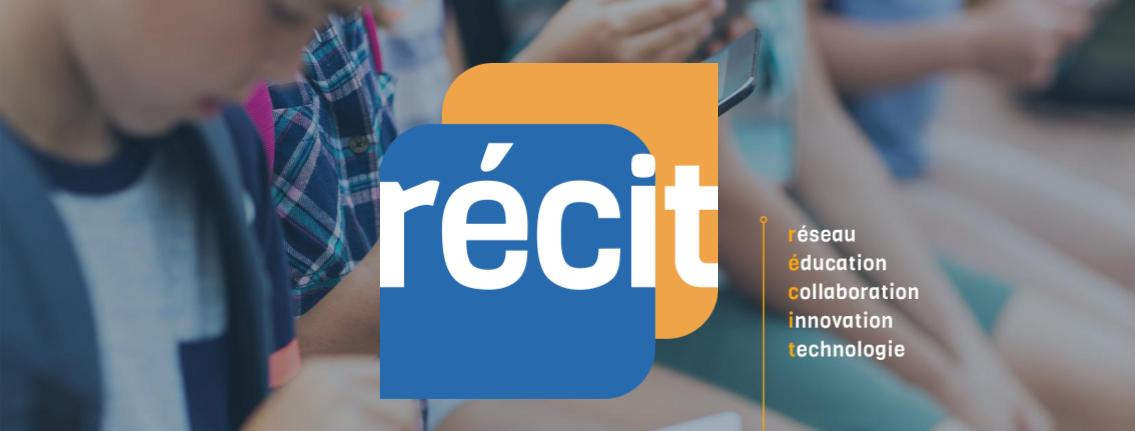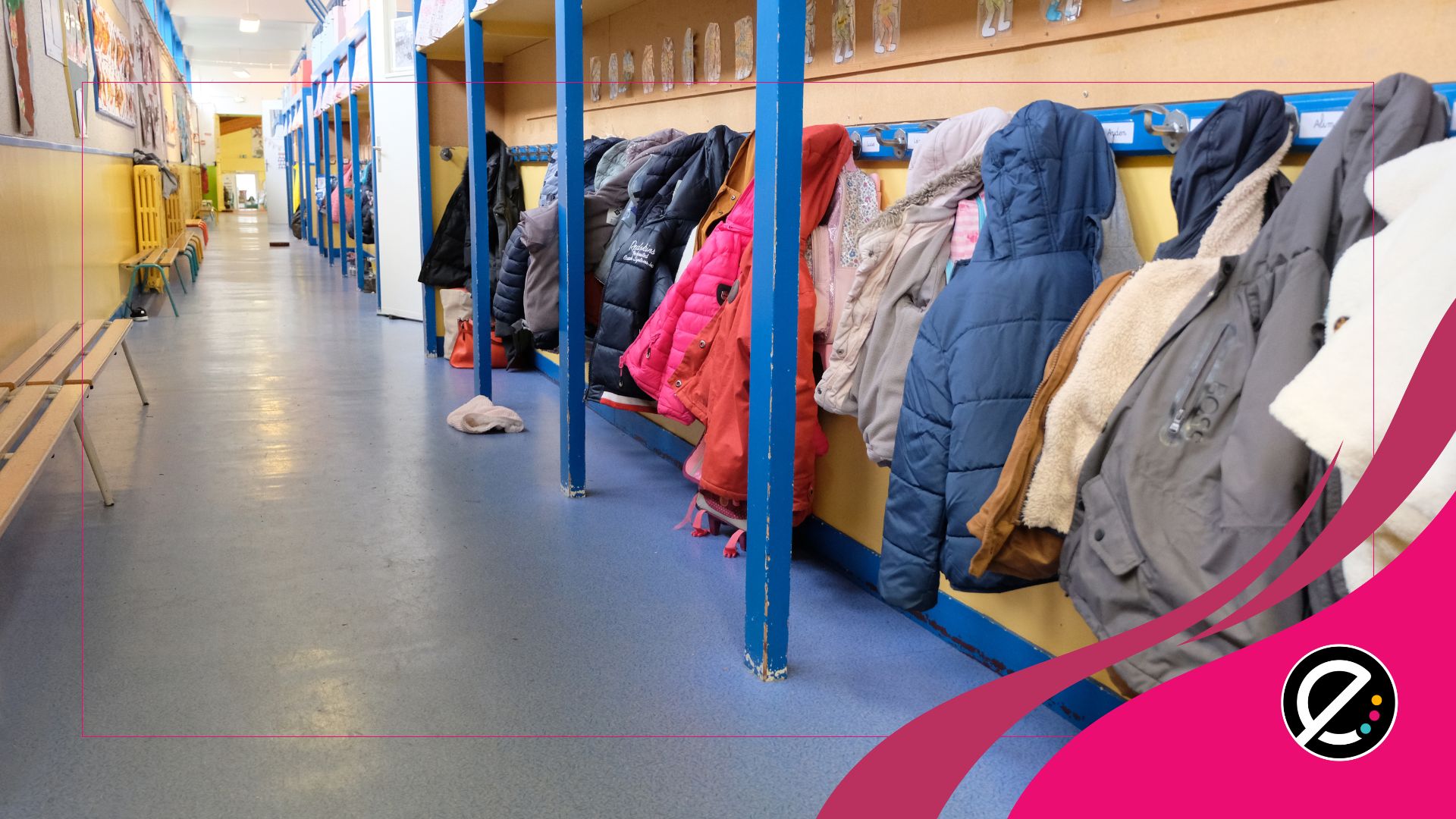Vous entendez l’expression métavers et vous souriez en coin? Attendez! Ces nouveaux environnements numériques de collaboration pourraient bien offrir des opportunités pour le monde de l’éducation… et ce, dans un avenir pas si lointain. Tour d’horizon avec Alexandre Chenette, Marie-Eve Lapolice et Benoît Petit.
Qu’est-ce que le métavers?
« Monde virtuel, immersif et persistant, qui permet la virtualisation des activités humaines, notamment sociales, ludiques, culturelles et commerciales ».
Source : Office québécoise de la langue française
« Les métavers sont des espaces numériques qui permettent d’être littéralement dans Internet et de concrétiser la notion de réalité étendue qui englobe la réalité virtuelle, la réalité augmentée, la réalité mixte », a précisé Alexandre Chenette, personne-ressource du service national du RÉCIT, domaine du développement de la personne (RÉCIT DP), lors de sa présentation au Sommet du numérique en éducation en mai 2022.
Même si le concept peut sembler futuriste pour certains, des plateformes, comme FrameVR.io et ExpoRV, offrent déjà des possibilités afin de créer des classes virtuelles ou des salles d’exposition virtuelles en 3D. Nous avons également déjà présenté Gather.town dans un article de l’École branchée.
Pas nouveau
L’idée derrière le concept de métavers, ce monde parallèle virtuel, n’est pas nouvelle. Dès 1992, elle a commencé à émerger dans l’ouvrage Le Samouraï virtuel (Snow Crash) de Neal Stephenson. Puis, elle a évolué au fil des ans, passant du technosolutionnisme à la reconstitution du monde physique, de La Matrice à SecondLife. Aujourd’hui, Facebook, devenu Meta, se donne une dizaine d’années pour construire un tout nouvel univers virtuel. D’autres métavers continuent d’être développés, si bien qu’il est plus adéquat de parler des métavers que du métavers.

Et l’éducation dans tout ça?
Marie-Eve Lapolice est conseillère pédagogique au service national du RÉCIT, domaine des arts, et passionnée de réalité virtuelle depuis 1994. Selon elle, pour qu’un métavers soit « efficace » en éducation, il devrait comprendre certaines caractéristiques :
- Création et adaptation – mondes, lieux, avatars, objets, expérience
- Évolution et transformation – techno, outils, mondes, pratiques
- Persistance et agnosticisme – tout le temps et pour tous
- Interactivité et socialisation – avec les autres, les objets et l’environnement
Elle y va de sa propre définition : « Le métavers est un réseau perpétuellement évolutif de mondes virtuels persistants et interconnectés. Il est axé sur l’interaction en temps réel des différents acteurs de l’éducation dans lequel ils peuvent réaliser toutes les actions habituelles telles que : enseigner, apprendre, collaborer, créer, présenter des projets, recevoir des experts, interagir socialement et jouer. Il met à profit des avancées technologiques pour immerger totalement ou partiellement l’utilisateur dans le métavers et il est accessible par tous, via des appareils variés ».
Bref, le métavers existe, que vous y soyez présent ou non, il continue d’évoluer avec d’autres utilisateurs qui s’y joignent à tour de rôle et il permet d’accomplir les mêmes tâches qu’en présence physique, tout en supprimant des contraintes comme la nécessité de se déplacer pour réaliser une activité.
Marie-Eve Lapolice pose ensuite un regard sur les technologies présentes dans les écoles et les possibilités offertes pour le moment. Les appareils permettant d’accéder au métavers sont déjà accessibles :
- ordinateurs (visioconférence et plateformes collaboratives)
- appareils mobiles (socialisation et réalité augmentée)
- casques de réalité virtuelle (expériences immersives)
La réalité augmentée
Des activités de réalité augmentée commencent également à faire leur apparition dans le milieu scolaire. Il est possible de visionner des contenus numériques éducatifs existants et même de créer ses propres expériences d’apprentissages (ex. Adobe Aero, Reality Composer). Par contre, il existe peu d’applications permettant de créer ensemble ou d’interagir avec la même expérience augmentée (ex. Just a Line, Flipgrid).
« Cependant, on ne peut pas qualifier ces activités de métavers. Elles sont chronophages, elles présentent peu de possibilités de collaboration et d’usage externe et il n’y a pas d’interopérabilité entre les expériences », fait remarquer Marie-Eve.
La réalité virtuelle
Il en va de même pour la réalité virtuelle. Il est possible de visualiser des expériences préparées par des créateurs, de visiter des lieux historiques et culturels, de visionner des documentaires tournés en 360 degrés, de manipuler des objets virtuels. Les enseignants peuvent créer des expériences virtuelles immersives pour leurs élèves et ceux-ci peuvent démontrer des notions avec des plateformes de création de RV (ex. CoSpaces Edu, Multibrush). Des applications permettant le travail d’équipe (ex. Spatial) ou les rencontres informelles (ex. VRChat, vTime) commencent aussi à émerger (ex. Spatial). Toutefois, « encore là, on ne peut pas parler de métavers ».
Les plateformes d’enseignement en ligne
Qui dit métavers en éducation pense immédiatement à transformation de l’expérience d’apprentissage en ligne, pour la rendre moins statique que la traditionnelle visioconférence et le diviser en groupe. Des plateformes présentant des expériences plus ludiques, comme Topia et Gather.town, Engage VR et Mozilla Hubs, sont maintenant disponibles. Elles sont accessibles sur divers types d’appareil, offrent plusieurs outils d’animation et, parfois même, la possibilité de créer son propre « monde ».
« La maturité de ces plateformes n’est pas encore là. Peu d’entre elles sont disponibles en français, leur usage peut être chronophage et coûteux », indique Marie-Eve.
Les limites et les promesses du métavers pour l’éducation
Bien que certaines limites se posent encore pour le déploiement du métavers en éducation (bande passante, disponibilité des appareils, protection des renseignements personnels et changement dans les pratiques), le potentiel est bel et bien présent, selon Mme Lapolice.
Cela pourrait vouloir dire :
- Une école ouverte 24h/24
- Accessible par tous, partout
- Avec une diversité des expériences d’apprentissage
- Offrant un enseignement multimodal et des expertises mondiales partagées
- Avec des mondes générés par intelligence artificielle et des conversations multilingues
- Accueillant des apprenants, mais aussi créateurs de contenu
- Quoi d’autre encore?
Des enjeux pour l’éducation
Par ailleurs, comme toute autre forme de réseau social, les métavers viendront avec leurs propres règles, codes de conduites, leurs défis et leurs enjeux qui devront être pris en compte pour éviter les situations malheureuses (de cyberintimidation par exemple). De même, puisque ces plateformes sont généralement développées par des entreprises privées, des questions en lien avec leur pérennité, la protection des renseignements personnels des utilisateurs et la propriété intellectuelle des créations se posent.
Pour Benoît Petit, personne-ressource du service national du RÉCIT des gestionnaires scolaires, il ne s’agit pas de rejeter d’emblée les métavers à venir, mais plutôt de réfléchir dès maintenant aux impacts potentiels afin d’être bien préparé le moment venu. « Continuons d’accompagner le développement d’une citoyenneté éthique et autonome à l’ère du numérique. Surtout, n’oublions pas que ce sont les utilisations centrées sur une intention pédagogique claire qui permettront une intégration bénéfique de ces plateformes au service de l’apprentissage. »
Les présentations :






